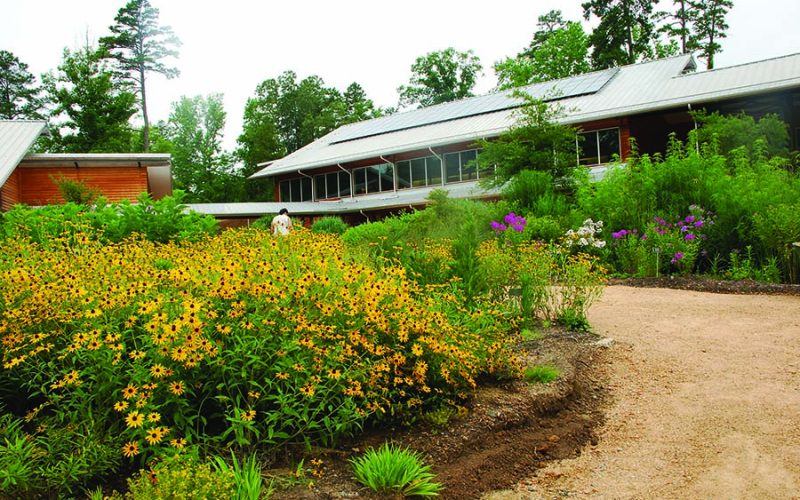
North Carolina Botanical Garden
CB 3375
Chapel Hill, NC 27599
What unique situations and initiatives have you undertaken or do you plan to undertake to address climate change?
We offer a native plant certificate program to the public, where any member of the community can become well-versed in native plant botany and education. We are one of the only native plant certificate programs in the area.
Our Garden also has a focus on rare plants, where our Conservation Program staff seek to understand what drives these extinctions and to reintroduce rare plant species into habitats where they once occurred. In addition, we have a seed bank where we collect seeds in order to preserve and restore genetic diversity in plant species. Our Garden also has the UNC Herbarium, which is the largest plant specimen collection in the Southeast.
Our education program, conservation and land management focus, and green event focus are three of our top three initiatives that address climate change and behavioral change in our community.
What are the most pressing problems or opportunities in your community that can be leveraged to address climate change?
The most pressing problems are the use of fossil fuels to power our community, businesses, and homes. Development of natural lands is also a pressing problem that the Garden seeks to address. We also hope to address food waste and stormwater management through outreach and education on waste prevention and composting at home. We hope to educate our community on rainwater harvesting, rainwater gardens, and planting for resilient landscapes.
What unique features of your garden can be leveraged to address climate change?
Our focus on native plants is our biggest asset to address climate change. We have a team of experts on native plants and conservation, and if we can motivate more individuals and organizations to plant for biodiversity and wildlife, and to protect private land for conservation, we think that is our biggest opportunity to address climate change.
What unique restraining forces do your institution or community face that prevent you from addressing climate change effectively? How can you steer this meeting of forces away from compromise and toward reconciliation and harmony?
Our restraining forces are limited funding, and a lack of diversity in our membership at the Garden. We need to reach more people of all economic and racial backgrounds to make this message of native plants and conservation widespread in our community. We are also limited on funding, and that affects our potential to reach more people with education, outreach, and action. We are focusing on Diversity and Inclusion through a new committee at the Garden, and we hope this moves the needle on reaching more people. We hope to secure sustainable funding from a variety of grants, donations, and increased membership to help us achieve our goals for sustainability and conservation.





